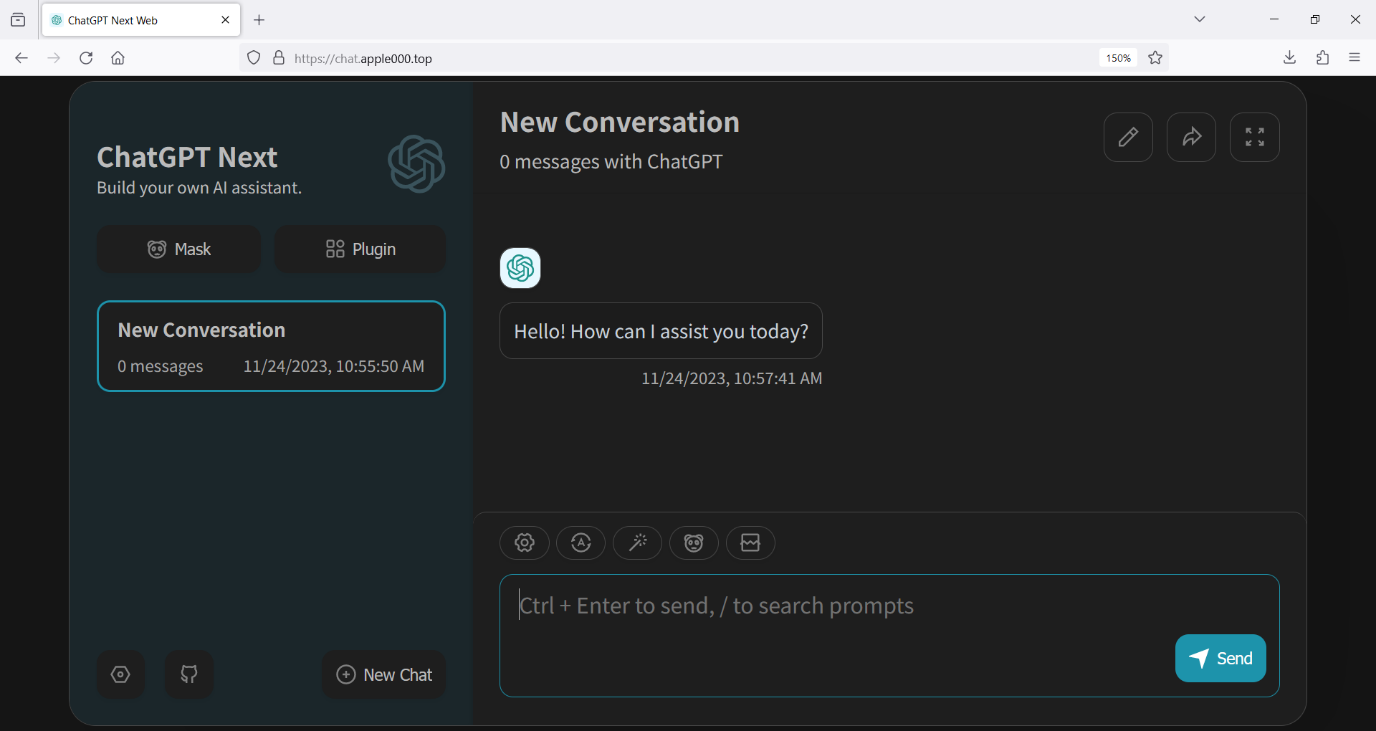Generative AI (GenAI) is making waves internationally. Its reputation and widespread use has additionally attracted the eye of cybercriminals, main to numerous cyberthreats. But a lot dialogue round threats related to instruments like ChatGPT has targeted on how the expertise may be misused to assist fraudsters create convincing phishing messages, produce malicious code or probe for vulnerabilities.
Maybe fewer persons are speaking about the usage of GenAI as a lure and a Malicious program by which to cover malware. Examples will not be too tough to return by. Final yr, for example, we wrote a couple of marketing campaign that urged Fb customers to check out the newest model of Google’s reliable AI device “Bard”; as a substitute, the adverts served a malicious imposter device.
Such campaigns are examples of a worrying development, they usually’re clearly not going wherever. It’s, subsequently, key to grasp how they work, be taught to identify the warning indicators, and take precautions in order that your identification and funds aren’t in danger.
How are the unhealthy guys utilizing GenAI as a lure?
Cybercriminals have varied methods of tricking you into putting in malware disguised as GenAI apps. These embody:
Phishing websites
Within the second half of 2023, ESET blocked over 650,000 makes an attempt to entry malicious domains containing “chapgpt” or related textual content. Victims almost certainly arrive there after clicking by means of from a hyperlink on social media, or by way of an electronic mail/cellular message. A few of these phishing pages could comprise hyperlinks to put in malware disguised as GenAI software program.
Internet browser extensions
ESET’s H1 2024 threat report particulars a malicious browser extension which customers are tricked into putting in after being lured by Fb adverts promising to take them to the official web site of OpenAI’s Sora or Google’s Gemini. Though the extension masquerades as Google Translate, it’s really an infostealer generally known as “Rilide Stealer V4,” which is designed to reap customers’ Fb credentials.

Since August 2023, ESET telemetry recorded over 4,000 makes an attempt to put in the malicious extension. Different malicious extensions declare to supply GenAI performance, and may very well accomplish that in a restricted type, in addition to ship malware, in keeping with Meta.
Pretend apps
There have additionally been various reports of pretend GenAI apps posted particularly to cellular app shops, with many of those apps containing malware. Some are laden with malicious software program designed to steal delicate data from the person’s system. This will embody login credentials, private identification particulars, monetary data, and extra.

Others are scams designed to generate income for the developer by promising superior AI capabilities, usually for a price. As soon as downloaded, they might bombard customers with adverts, solicit in-app purchases, or require subscriptions for providers which might be both non-existent or of extraordinarily poor high quality.
Malicious adverts
Malicious actors are using the recognition of GenAI instruments to trick customers into clicking on malicious promoting. Malicious Fb adverts are significantly prevalent. Meta warned final yr that many of those campaigns are designed to compromise “companies with entry to advert accounts throughout the web.”

Menace actors hijack a reliable account or web page, change the profile data to make it seems as if an genuine ChatGPT or different GenAI-branded web page, after which use the accounts to run pretend adverts. These supply hyperlinks to the newest model of GenAI instruments, however in actuality deploy infostealer malware, in keeping with researchers.
The artwork of the lure
People are social creatures. We need to imagine the tales we’re informed. We’re additionally covetous. We need to pay money for the newest devices and apps. Menace actors exploit our greed, our concern of lacking out, our credulity and our curiosity to get us to click on on malicious hyperlinks or obtain apps with malware hidden inside.
However for us to hit that set up button, what’s on supply must be fairly head turning, and – like all the very best lies – it must be grounded in a kernel of fact. Social engineers are significantly adept at mastering these darkish arts – persuading us to click on on salacious information tales about celebrities, or present affairs (bear in mind these tall tales about pretend COVID-19 vaccines?). Typically they’ll supply us one thing without cost, at an unbelievable low cost, or earlier than anybody else will get it. As we defined right here, we fall for these methods as a result of:
- We’re in a rush, particularly if we’re viewing the content material on our cellular system
- They’re good storytellers, and are more and more fluent, utilizing (sarcastically) GenAI to inform their tales seamlessly in a number of languages
- We like to get one thing for nothing, even when it’s too good to be true
- The unhealthy guys are good at sharing data on what works and what doesn’t, whereas we’re much less good at in search of out or taking recommendation
- We’re hardwired to respect authority, or no less than the legitimacy of a proposal, so long as it’s “formally” branded
In terms of GenAI, malware-slingers are getting more and more refined. They use a number of channels to unfold their lies. And so they’re disguising malware as every little thing from ChatGPT and video creator Sora AI, to picture generator Midjourney, DALL-E and photograph editor Evoto. Most of the variations they tout aren’t but obtainable, which attracts within the sufferer: “ChatGPT 5” or “DALL-E 3” for instance.
They guarantee malware continues to fly beneath the radar by commonly adapting their payloads to keep away from detection by safety instruments. And so they take a substantial amount of effort and time to make sure their lures (comparable to Fb adverts) look the half. If it doesn’t look official, who’s going to obtain it?
What might be in danger?
So what’s the worst that might occur? In case you click on to obtain a pretend GenAI app in your cellular or an internet site and it installs malware, what’s the tip purpose for the unhealthy guys? In lots of instances it’s an info-stealer. These items of malware are designed, because the title suggests, to reap delicate data. It may embody credentials to your on-line accounts, comparable to work log-ins, or saved bank cards, session cookies (to bypass multifactor authentication), belongings saved in crypto wallets, knowledge streams from immediate messaging apps, and far more.
It’s not nearly info-stealer malware, after all. Cybercriminals may theoretically conceal any kind of malware in apps and malicious hyperlinks, together with ransomware and distant entry Trojans (RATs). For the sufferer, this might result in:
- A hacker gaining full distant management over your PC/cell phone and something saved on it. They may use entry to steal your most delicate private and monetary data, or flip your machine right into a “zombie” pc to launch assaults on others
- They may use your private data for identification fraud which may be extraordinarily distressing, to not point out costly, for the sufferer
- They may use monetary and identification particulars to acquire new credit score traces in your title, or to steal crypto belongings and entry and drain financial institution accounts
- They may even use your work credentials to launch an assault in your employer, or a associate/provider group. A current digital extortion marketing campaign which used infostealer malware to gain access to Snowflake accounts led to the compromise of tens of hundreds of thousands of buyer particulars
The best way to keep away from malicious GenAI lures
Some tried-and-tested greatest practices ought to preserve you heading in the right direction and away from GenAI threats. Take into account the next:
- Solely set up apps from official app shops
Google Play and the Apple App Retailer have rigorous vetting processes and common monitoring to weed out malicious apps. Keep away from downloading apps from third-party web sites or unofficial sources, as they’re much more prone to host malicious wares.
- Double examine the builders behind apps and any critiques of their software program
Earlier than downloading an app, confirm the developer’s credentials and search for different apps they’ve developed and browse person critiques. Suspicious apps usually have poorly written descriptions, restricted developer historical past, and destructive suggestions highlighting points.
- Be cautious of clicking on digital adverts
Digital adverts, particularly on social media platforms like Fb, could be a widespread vector for distributing malicious apps. As an alternative of clicking on adverts, immediately seek for the app or device in your official app retailer to make sure you’re getting the reliable model.
- Verify internet browser extensions earlier than putting in them
Internet browser extensions can improve your internet expertise however may pose safety dangers. Verify the developer’s background and browse critiques earlier than putting in any extensions. Persist with well-known builders and extensions with excessive rankings and substantial person suggestions.
- Use complete safety software program from a good vendor
Guarantee you’ve got sturdy safety software program from a good vendor put in in your PC and all cellular units. This offers real-time safety in opposition to malware, phishing makes an attempt, and different on-line threats.
Phishing stays a perennial menace. Be cautious of unsolicited messages that immediate you to click on on hyperlinks or open attachments. Confirm the sender’s identification earlier than interacting with any electronic mail, textual content, or social media message that seems suspicious.
- Allow multi-factor authentication (MFA) for all of your on-line accounts
MFA provides an additional layer of safety to your on-line accounts by requiring a number of verification strategies. Allow MFA wherever potential to guard your accounts even when your password is compromised.
As proven above, cybercriminals can’t resist exploiting the joy round new releases. In case you see a proposal to obtain a brand new model of a GenAI device, confirm its availability by means of official channels earlier than continuing. Verify the official web site or trusted information sources to verify the discharge.
GenAI is altering the world round us at a fast tempo. Be sure it doesn’t change yours for the more serious.



